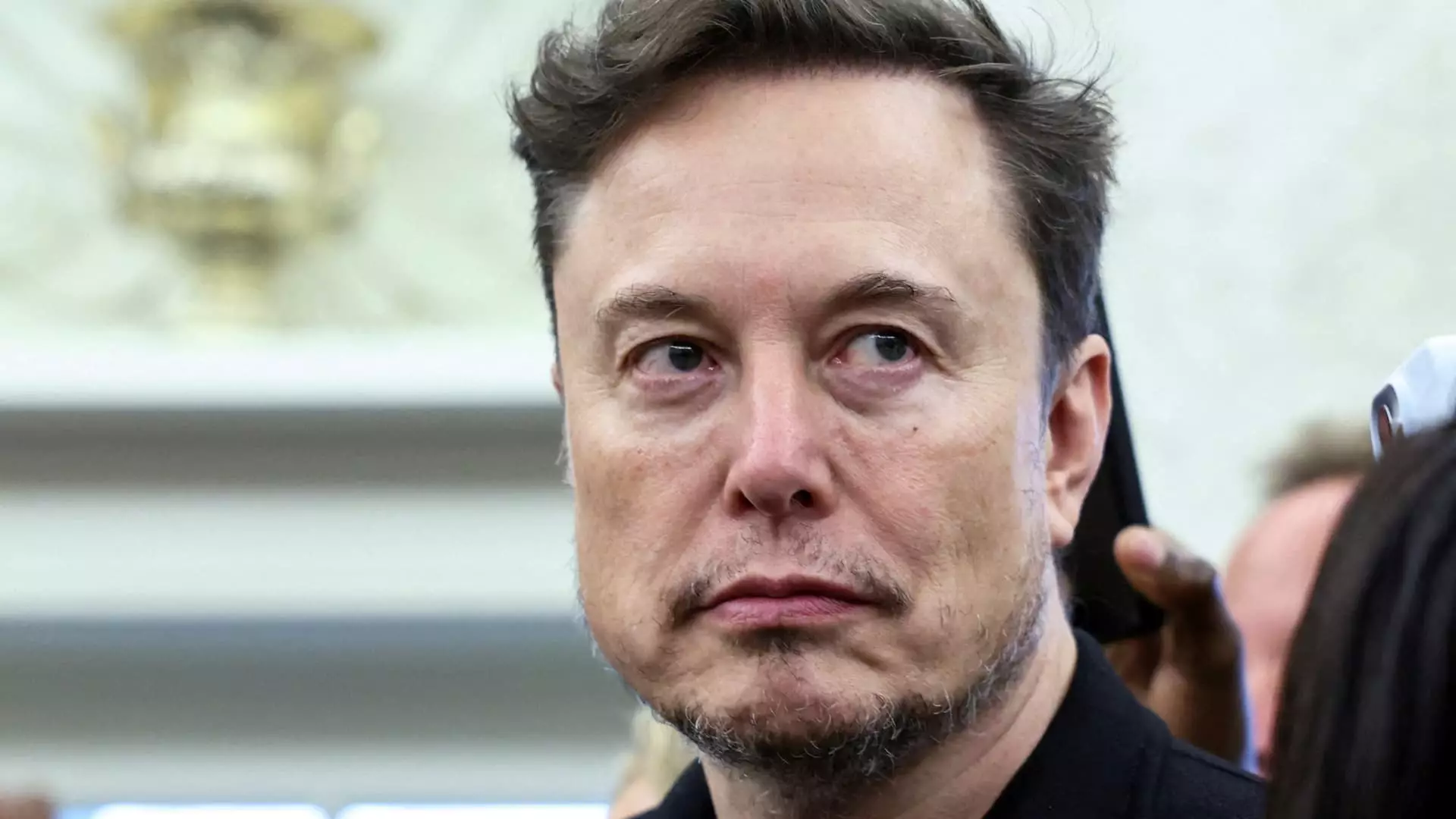The recent outage on Elon Musk’s platform X is more than just another technical glitch; it is symptomatic of a deeper malaise that has plagued the social media giant since its acquisition. A staggering 25,000 users reported issues on a Saturday morning, reflecting a growing dissatisfaction among its user base. While technical difficulties are not uncommon in the tech realm, the frequency and severity of these issues raise questions about the operational management under Musk’s leadership.
What’s most troubling is the now familiar pattern: this incident marks the second major outage in a week. Users expect a certain level of reliability, especially when they invest their time and engagement in a platform. Musk’s casual admission that “major operational improvements need to be made” feels inadequate against the backdrop of ongoing user frustrations. The tech mogul’s dedication to resolving the issues—staying up all night in conference rooms further exacerbates the sense of urgency but points to a chaotic corporate culture that may not prioritize efficient workflow and user experience.
The Illusion of Control
Musk’s reaction to the outage reflects his characteristic candor as he acknowledged shortcomings openly on X, stating that “the failover redundancy should have worked, but did not.” However, this admission feels more like a band-aid on a severed artery than a robust strategy for improvement. This is not just a case of bad luck; this signals potentially deeper operational flaws that call into question his leadership approach.
When users encounter repeated outages, it thrusts them into a limbo of uncertainty, showing a disconnect between Musk’s visionary ambitions and the reality of a system struggling with its foundational tech architecture. His appeal for users to bear with him while he “must be super focused” on critical technologies sounds a bit hollow when repeated failures compromise the core value proposition of a social media platform—reliability.
Caught in a Cyberstorm
On a larger scale, the saga of X faces the reality of being a tempting target in the digital age. Musk previously mentioned that the platform “gets attacked every day,” referring to what he labeled as a “massive cyberattack” earlier this year. It poses serious questions about cybersecurity readiness following a substantial acquisition. If a platform as high-profile as X is vulnerable to persistent attacks and outages, what does this say about the safety and privacy of its users?
For a tech haven meant to facilitate free speech and open dialogue, the constant threat of infrastructure failure compromises these ideals and obscures the way forward for the platform. At a time when digital spaces should empower connection, X increasingly leaves users stranded—feeling like pawns in a larger game of tech chess.
The present challenges facing Musk and X underscore an urgent need for systemic transformation rather than merely reactive measures. The tech industry demands not just innovative ideas, but also the execution of a steadfast operational framework that can hold up in an era marked by volatility and digital unrest.

